Recent years have seen a resurgence of Christian interest in classical Greek philosophy. While the nineteenth-century distrust of Hellenization led to a dismissal of essentialist philosophical categories as useful for theology, recent authors have recognized the damaging toll of such a denial of metaphysics for theological development within the last century.
The rejection of the very categories used by the Patristics in their formulation of the ancient creeds has led to an anemic ontology with the result being a social Trinitarianism and a soteriology defined purely by extrinsic relations within the world of Protestantism. Writers like Craig Carter, Edward Feser, and James Dolezal have begun the important work of bringing classical metaphysics back into the discipline of theology.See Matthew Barrett, Simply Trinity: the Unmanipulated Father, Son, and Spirit (Grand Rapids, MI: Baker, 2021); Craig A. Carter, Contemplating God with the Great Tradition: Recovering Trinitarian Classical Theism (Grand Rapids, MI: Baker, 2021); Edward Feser, Scholastic Metaphysics: A Contemporary Introduction, Editiones Scholasticae vol. 39 (Piscataway, NJ: Transaction Books, 2014). This has produced much fruit in both systematic theology and apologetics toward an increasingly unbelieving world. In From Plato to Christ: How Platonic Thought Shaped the Christian Faith, Louis Markos offers a valuable contribution to these conversations in a much-needed treatment of Plato and his influence upon the church.
The Intended Audience of this Work
The greatest benefit of Markos’s book is its accessibility. It is a common retort among both clergy and laity that the revival of classical philosophy is a subject for the ivory tower, something that fails to touch down into the average Christian’s life. This supposedly leads to a doctrinal system which is made inaccessible to the uneducated. Markos tackles this challenge by providing a manual to Plato’s ideas, and its subsequent impact upon the church, in a manner that can be understood by the non-philosophically trained reader. He shows that, despite common misconceptions, Plato’s primary ideas are quite practical. This is not to say that the work should not also be of interest to philosophers. As one who is an avid reader of Plato myself, there were areas in which I found Markos’s connections enlightening and informative.
As Markos has been highly involved in the classical Christian education movement, he recognizes the importance of accessibility. In this and his other works, he provides a valuable resource for educators instructing young students in classical thought from a Christian worldview. This book ties in well to Markos’s previous texts such as From Achilles to Christ, and Myth Made Fact, wherein Markos argues that Greek myths were used by God to prepare the Gentiles for the gospel. While such a contention might seem quite controversial today, it was mostly taken as a given by the church fathers. The question, then, is whether Markos succeeds in making such an argument.
Markos’s Representation of Plato
With a book of this type, one could approach Plato’s ideas in a variety of ways. Some overviews of the philosopher take a systematic approach, categorizing Plato’s ideas topic by topic. Markos chooses, instead, to summarize Plato’s dialogues beginning with his early works and ending with the Timaeus. This is probably a better method, at least literarily, as one is introduced to the philosopher not only as a man of ideas, but as an author. The reader gains an understanding of not only what Plato believed, but of how he presented his thought. As anyone who has spent time in the two chief ancient Greek thinkers—Plato and Aristotle—knows,Markos presents a wonderful and easy-to-read introduction to the philosopher’s primary ideas. the former is a much easier read as his dialogues present engaging characters and scenes to display his thoughts. As a professor of Literature, it is unsurprising that Markos writes on Plato rather than his student. This literary focus is generally a benefit to the book.
In these summaries of Plato’s dialogues, Markos presents a wonderful and easy-to-read introduction to the philosopher’s primary ideas. Even if one simply wanted an introductory text to the philosopher without any regard for his impact on the Christian faith, this text would be a worthwhile study. I have read a number of introductory texts on Plato’s ideas, and none have the clarity and careful structure as Markos’s here. Summarizing the ideas of such an intellectual and creative giant with concision is no easy task, but Markos takes it on as well as anyone.
With that being said, there certainly are shortcomings in the explanation of Plato in this text. As is consistent with the purpose of the work, Markos spends a significant amount of time describing those parts of Plato’s philosophy that align with Christianity. This means that other themes are not addressed thoroughly. This, however, is necessitated by the nature of the text. A comprehensive study is an impossibility due to the size of this work, and any author must simply decide what is to be left out.
This is understandable for the most part, but due to certain emphases, Markos’s take is sure to be seen as a bit too sympathetic for some. Markos, for example, has a lengthy study of the Timaeus, which most closely echoes Christian themes, but is largely dismissive of Plato’s approval of homosexuality. On this latter point, Markos argues that Plato refers to homosexuality as unnatural in the Laws (p. 84). While Markos is right to point out a diversity of statements of the subject in Plato, rather than mere celebration of such behavior in the philosopher, I am not convinced that Markos’s interpretation is consistent with the many positive statements of homosexual relations in his dialogues. With regard to Markos’s explanation of the Timaeus, some of his interpretations are sure to be discounted by some. For example, he articulates Plato’s view of creation as one in which the physical world is good in contradistinction to the gnostic distaste for matter (p. 108). Though I happen to agree with Markos’s interpretation here, not every interpreter understands the Greek thinker in this way. Even with ideas that Christians generally reject, like the preexistence of the soul (p. 51), Markos attempts to provide explanations which emphasize continuity rather than discontinuity with Christianity. To be clear, I tend to think he is correct in most of these connections, but Markos certainly does not come off as an unbiased interpreter.
These quibbles are rather minor, and have only to do with Markos’s clear love for the philosopher’s writings, and a desire to read him sympathetically from a Christian perspective. Overall, the portrayal of Plato here is one which is sure to engage even the philosophically uninclined reader, as it is written compellingly and with a clear view of the practical nature of Plato’s ideas.
Markos on the Christian Platonists
In the second part of the book, Markos takes upon himself the even more daunting task of portraying not just a single philosopher’s ideas, but the reception of Plato’s ideas by the entire Christian tradition. This survey is necessarily selective in its sources, and is done through an exploration of the following Christian Platonists in history: Origen, the Cappadocian fathers, Augustine, Boethius, Dante, Erasmus, Descartes, Coleridge, and C. S. Lewis. The selection of the first figures is mostly a given—one cannot accurately speak about Platonic influence in the church apart from Origen and Augustine. However, it is a bit disappointing not to see the significant figures of the Protestant Reformation or immediate post-Reformation era here. If you will allow me for a moment to be the obnoxious academic who thinks everyone should care as much about the topic of my dissertation as I do,Origen appears here as the arch-Platonist, who desired to retain Christian orthodoxy with a rigorous use of Plato’s categories. I believe that there would have been some benefit in at least a brief explanation of the influence of Platonism on Martin Luther or Philip Melanchthon.My dissertation is published as Jordan Cooper, Prolegomena: A Defense of the Scholastic Method, A Contemporary Protestant Scholastic Theology vol. 1. (Ithaca, NY: Just and Sinner, 2020). As a Protestant himself, I am sure that Markos is aware of the many criticisms of the Reformation as being rooted in nominalist philosophy rather than the classical metaphysics of Plato and Aristotle. Nonetheless, despite the lack of Reformation sources, the overviews given here are quite insightful.
Origen appears here as the arch-Platonist, who desired to retain Christian orthodoxy with a rigorous use of Plato’s categories. This has led to a mixed reception of the early Christian theologian. On the one hand, he paved the way for later Christological developments with his doctrine of the eternal generation of Christ; on the other, he was condemned by church councils for his views on universal salvation and the soul’s preexistence. Markos articulates the positives in Origen’s though with his construal of divine wisdom with roots both in the Hebrew Scriptures and the Greeks (p. 142). Christ is the eternal wisdom, and the one through whom anything is to be properly understood. As an example of Origen’s misuse of Plato, Markos cites his idea of the soul’s preexistence (p. 151). Yet, even here, Markos argues that there is truth hidden under this concept. Though Markos does not believe that individual souls exist prior to conception, he argues that there is another sense in which all people did exist “in Adam” (p. 152). Though Markos does point out throughout this second part of the book that sometimes Christians were mistaken in their use of Plato, he generally argues that Plato’s impact on theology was positive. Origen is demonstrative of that approach.
The other figures Markos explores are far less controversial. The Cappadocian fathers impacted Trinitarian theology of both the East and the West, and did so through a modification of strongly Platonic concepts. Markos explains their use of such categories well, especially as related to practical piety. Their thought is connected, by Markos, to the great Eastern theologian Gregory Palamas, wherein he shows how the uniquely Eastern doctrine of theosis was built upon Platonic foundations. Having shown this in the East, Markos then turns to the Western church, explaining the Platonic roots of the most significant Western theologian—Augustine. As much has been written on this subject, Markos does not offer anything new here. However, he helpfully places Augustine within the broader Platonic tradition, demonstrating continuity between him and other figures of both East and West.
Though the Platonic influence of later theologians may often not be as overt as in the Patristic sources, Markos shows that continuity exists with later thinkers like Dante and Erasmus, even into some of modern philosophy such as with Descartes. As will be unsurprising to anyone familiar with Markos’s work, he concludes with a discussion of C. S. Lewis. This second section of the book, like the first, is about as thorough of a treatment as one could possibly expect from a survey like this. There are, however, two areas of minor critique I have to offer to Markos’s proposal.
Two Challenges to the Thesis
I must acknowledge here that the two points of disagreement I have with Markos flow not out of my understanding of Plato, but of my adherence to the Reformation. While Markos accurately reflects various Platonisms throughout his text, I contend that he misses two fundamental principles of the Reformation which, from a Protestant perspective, should be addressed in relation to the Platonism of the fathers: the bondage of the will, and the passivity of Christian spirituality.
From Augustine and Pelagius to Gottschalk and Rabanus to Luther and Erasmus, there has been no shortage of debates on the relationship between divine grace and human freedom. In answering the age-old question of “why are some saved and not others?” Markos cites an illustration from Origen of the relationship between the sun, wax, and mud (pp. 148–49). When the sun shines upon wax, the material softens. When it does the same to mud, that mud hardens. Origen reasons that this is why grace impacts some by softening them and others by hardening them: it is not the nature of God that makes the difference, but the nature of the creature that he comes in contact with. It is up to the individual soul to prepare oneself for grace, so that God transforms rather than hardens the human heart.I must acknowledge here that the two points of disagreement I have with Markos flow not out of my understanding of Plato, but of my adherence to the Reformation. In other words, salvation is “synergistic” (p. 150). Such a view will immediately be rejected by Reformed and Lutheran readers who articulate monergistic salvation as a central tenet of the Reformation.
This leads then to the second problem: the spirituality of ascent. Throughout the book, Markos cites Christians whose piety is modeled on the notion of the ascent of the soul to God which is, ultimately, a synergistic process. To be clear, Markos repeatedly makes it clear that divine grace begins this process and that justification is received sola fide. There is no Pelagianism here. However, his formulation misses some central elements of Reformation spirituality.
Martin Luther’s approach to Christian godliness has sometimes referred to as “passive spirituality.”See the full treatment of this in John Kleinig, Grace Upon Grace: Spirituality for Today (St. Louis, MO: Concordia, 2008). For the Reformer, the Christian faith not only begins, but continues and grows by grace. As far as Platonism is concerned, Luther himself is influenced primarily by mystics who have their roots in Neoplatonic spirituality such as Johann Tauler, Bernard of Clairvaux, and the anonymous author of the Theologia Germanica. These authors referred to growth in faith as accomplished by a resting before God, as a giving up of self-will so that the divine would fill the Christian with God’s own self and will. The intent here is not to deny the reality of growth in the process of sanctification, but to ground such growth in the Christian’s continual stance before God as a beggar in need. There is cooperation, but only through Christ’s operation in faith.This is the subject of my book: Jordan Cooper, Union With Christ: Salvation as Participation, A Contemporary Protestant Scholastic Theology (Ithaca, NY: Just and Sinner, 2021).
As an example, take the common mystical path of ascent as formulated in the medieval period: purgation, illumination, and finally union. This was a continually active process with union with Christ being achieved through the way of the ascent of the soul to God. Luther radically changes this approach. In faith, the Christian is united to God. This is an accomplished work which grounds the Christian life as its efficient cause, rather than its telos. The purgation of sin, then (often identified as mortification, or the negative aspect of sanctification) can in no way result in union, but flows out of it. Because God has united himself to the soul, the Christian can cooperate with God in the expulsion of sin and growth in righteousness. It is in this area that I think Luther provides a better way than Origen or Erasmus.
Conclusion
Markos’s book is commendable, as he does what more scholars need to continue to do. In challenging the all too popular Hellenization thesis, Markos succeeds in showing that Platonism and Christianity are not mutually exclusive systems. Positively, Platonism demonstrates the power of natural revelation, as God used such a system to prepare the Greeks to receive the gospel. Early Christians rightly used some of these tools to explain the truths of Scripture, and expound upon the nature of God. Anyone grappling with these questions, or who just wants some more information about Plato, will benefit from this book.
While I do largely agree with Markos’s overall thesis here, his appeal for a Christian humanism is lacking in its Reformational emphases. Rather than the humanism of Erasmus, I believe that the Protestant church would do better to follow Luther’s more Augustinian mysticism, which emphasizes the passivity of the believer in faith and the active power of Christ.
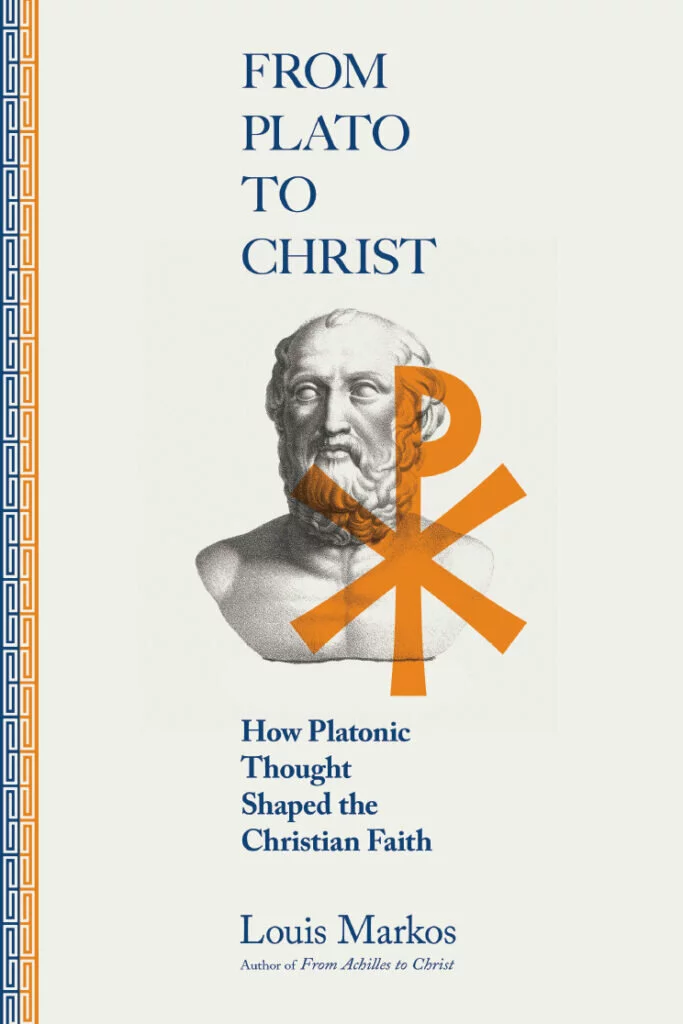
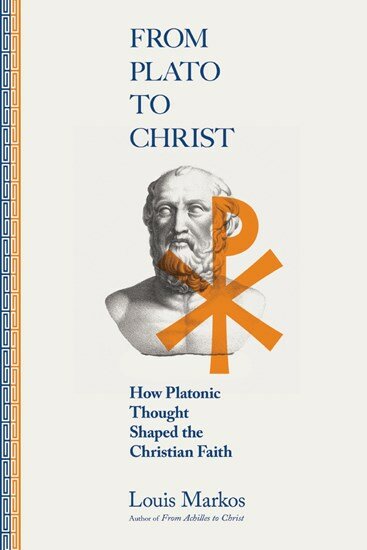
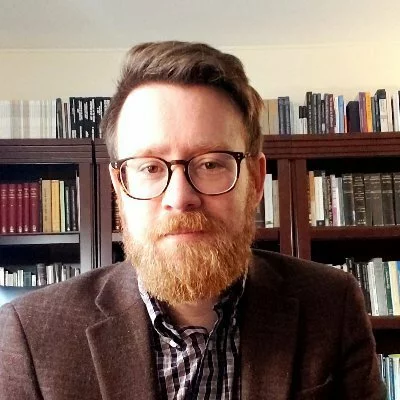

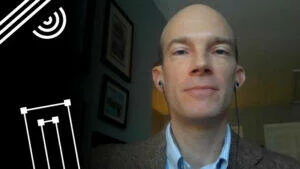
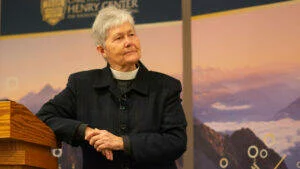
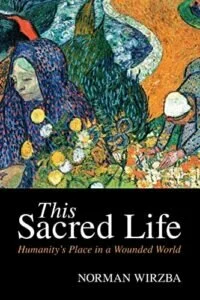

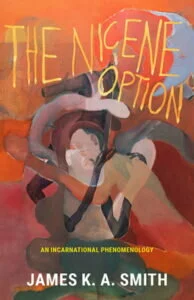
Comments
Be the first one to make a comment!